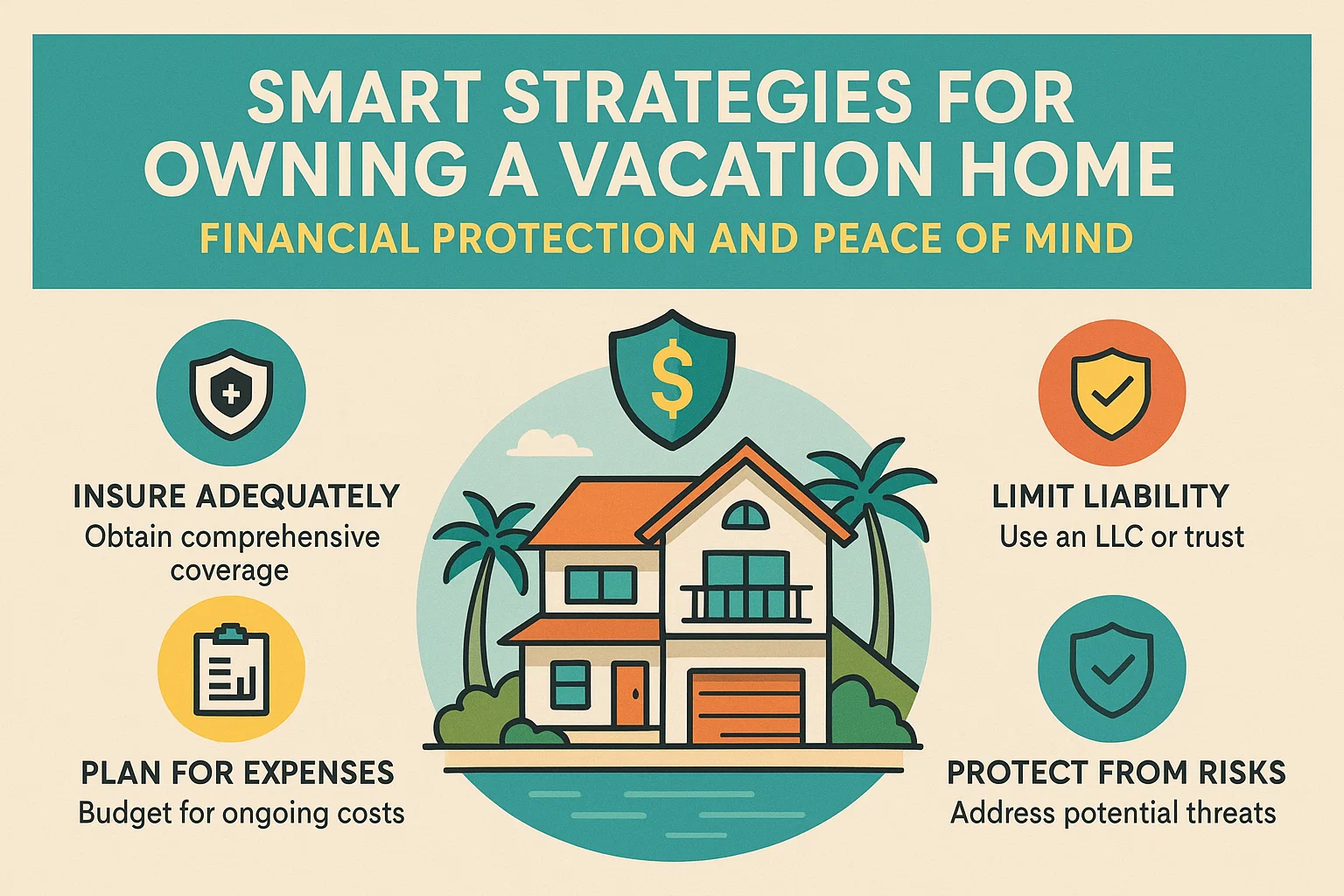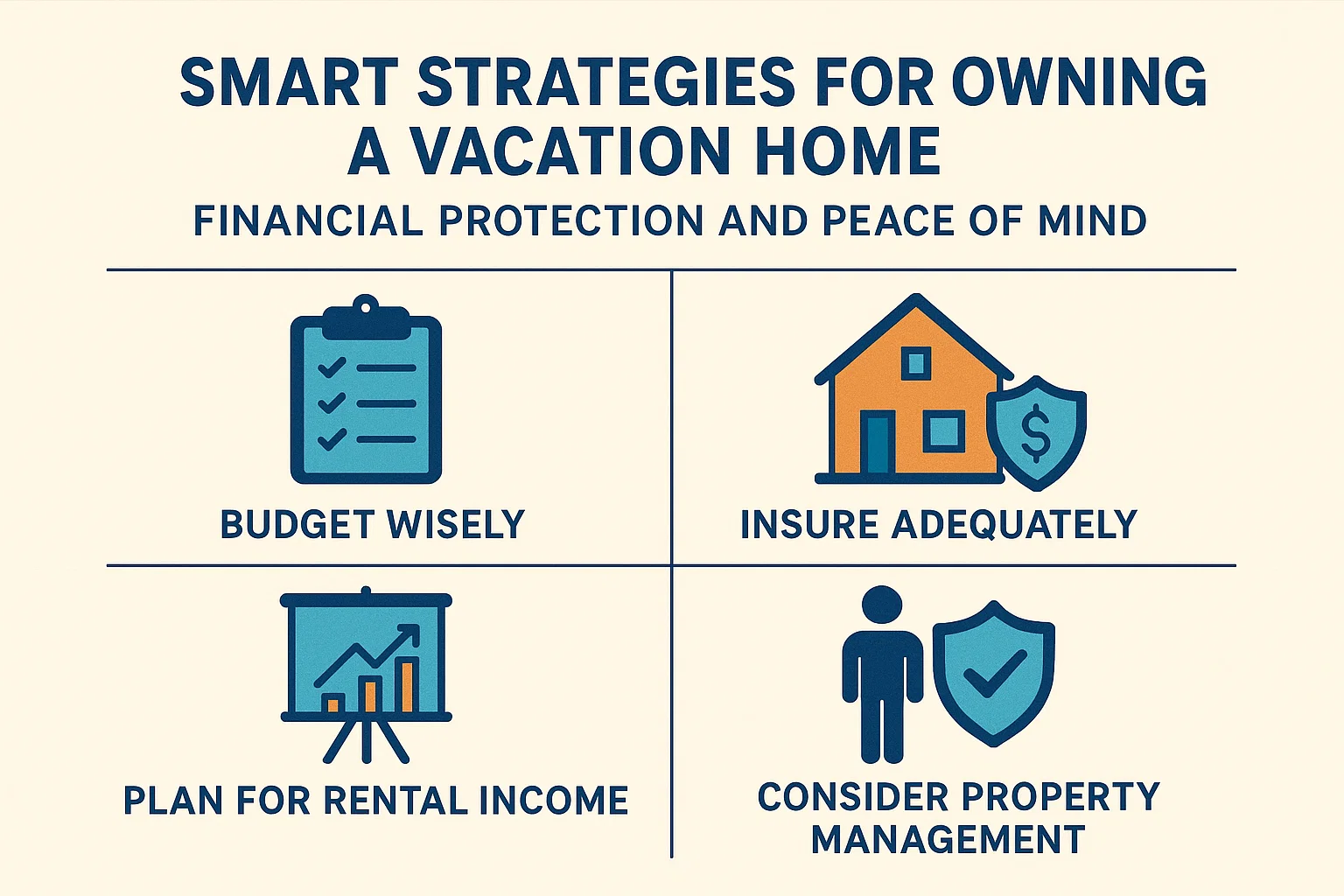Smart Strategies for Owning a Vacation Home: Financial Protection and Peace of Mind

Smart Strategies for Owning a Vacation Home: Financial Protection and Peace of Mind
Rent Before You Buy
To ensure your vacation home remains a source of relaxation—not stress—prioritize financial and asset protection. Many buyers rush into purchases after falling in love with a picturesque location, only to face unexpected challenges. Avoid becoming an absentee landlord to recoup costs, which often leads to added responsibilities. Instead:
- Rent in the area for 1-2 years to familiarize yourself with the neighborhood.
- Map out your preferred amenities and confirm the location aligns with your lifestyle and budget.
- Consider whether this home could serve as a long-term retirement destination.
Prepare Your Homes For All Seasons
Seasonal maintenance is critical for both cold-weather and tropical properties. Proactive steps include:
- Partner with a trusted neighbor or opt for a property with a homeowner’s association to handle exterior upkeep.
- If managing the property yourself, address summer vacancy risks like:
- Lawn care and vegetation control
- Mail holds to prevent theft
- Inspections for leaks, mold, or roof damage
- Gutter and downspout maintenance
Research How to Lower Your Taxes
State tax laws vary widely, with some offering breaks on retirement income or real estate for seniors. To maximize benefits:
- Establish residency by:
- Applying for a local driver’s license
- Registering to vote in the area
- Opening a regional bank account
- Securing a phone number with the local area code
- Maintain detailed records of time spent at the property (e.g., travel receipts, credit card statements) to meet residency requirements.
- Avoid double taxation by understanding state-specific rules for income reporting, especially if renting the property for 14+ days annually.
Plan For Health Care
- Verify that your health insurance covers out-of-network care in the area.
- Identify nearby hospitals and pharmacies that accept your insurance.
- Digitize critical documents like medical power of attorney for easy access.
- Share medical records with a local pharmacy for prescription refills.
Know Fees Involved in Owning a Second Home
Owning two properties often increases expenses. Common costs include:
- Utility management (e.g., timed vs. continuous AC to prevent mold)
- Travel between homes (fuel, flights, etc.)
- Furnishing costs vs. buying a pre-furnished property
- Tenant-related repairs if renting (e.g., repainting, carpet replacement)
Pro Tip: Use online banking to track bills and notify your bank of cross-state transactions to avoid frozen accounts.
Final Considerations
Before finalizing your purchase, evaluate:
- Safety and Noise: Proximity to fire stations, schools, or nightlife
- Space Needs: Accommodations for guests vs. downsizing
- Lifestyle Alignment: Avoid assuming future hobbies or budget changes will justify the purchase.




